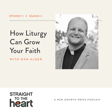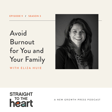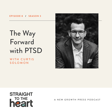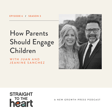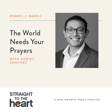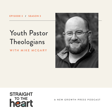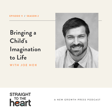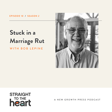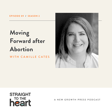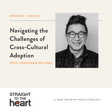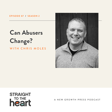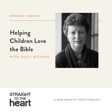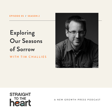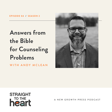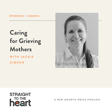
Obsessive and Intrusive Thoughts with Mike Emlet
In this episode of Straight to the Heart, our host Rush Witt talks with Mike Emlet who practiced as a family physician for over ten years before becoming a counselor and faculty member at the Christian Counseling & Educational Foundation (CCEF). They talk about difficult topics like intrusive thoughts and Scrupulosity, and the biblical wisdom that helps us overcome them.
MIKE EMLET ONLINE
Mike’s Website
MENTIONED IN THIS EPISODE
Autism Spectrum Disorder (minibook)
Saints, Sinners, and Sufferers
For more about the podcast at New Growth Press online.
Timestamps:
1:21 - Why do you describe yourself as a cup half empty kind of guy?
4:25 - What’s the most recent cup-half-empty moment you’ve had?
6:45 - What do you mean when you refer to emotional buoyancy?
10:44 - The Intrusive Problem of Scrupulosity
14:49 - Why are we prone to intrusive, unwanted thoughts?
17:54 - When you counsel scrupulosity, what is the central approach you take?
23:54 - What does growth look like in the area of intrusive thoughts?
27:12 - How do we turn down the volume on intrusive thoughts?
33:55 - In what ways does our embodied nature affect us?
38:35 - Is Mike Emlet a hugger?
41:50 - Farewell
